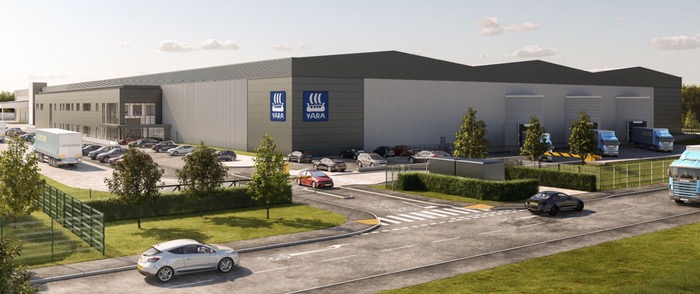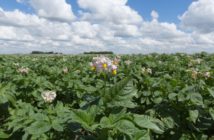Yara International has chosen the UK as the home of its new global production plant for specialty crop nutrition products and biostimulants.
The plant, which is set to be built close to Yara’s existing site in Pocklington, Yorkshire represents a significant and exciting investment in UK agriculture as well as another sign of Yara’s commitment to increasing production of these products, which are crucial for achieving food security and combating climate change.
Set to be one of the largest of its kind in the world and the largest in the UK, the facility is expected to be operational by the end of 2025 and it will double Yara’s current production capacity of YaraVita speciality crop nutrition products and biostimulants. Virtually all the output from the plant will be exported to markets around the world.
“As a global company with production plants and employees all over the world, Yara could have built this plant anywhere, but we chose the UK,” says Jari Pentinmäki, managing director of Yara UK. “We are delighted that we are able to support UK agriculture in this way and we know that our current employees in Yorkshire will be excited that production will remain there, just as it has been since 2009.”
Strong roots
Yara’s proud Yorkshire roots go back even further than this, though. The company was known as Phosyn when it was founded in 1967 in Pocklington. By 2006, it had become part of Yara International with the aim of transforming crop nutrition with the introduction of its foliar application products. Fast forward to 2019, and the company entered the biostimulants segment with the development of new products like those that will be produced in the new facility.
“What began in Yorkshire is set to stay in Yorkshire for the next leg of the Yara journey,” says David Tomkinson, operations director of Yara UK and son of the founder of Phosyn, John Tomkinson. “We have seen sales of YaraVita specialty crop nutrition products and biostimulants grow fivefold in the last 20 years. These products are formulated to meet the specific needs of crops throughout the growing season and to help them increase their resilience to climate change.”
The market for global specialty fertilisers is projected to grow at compounded annual growth rate (CAGR) of 6.8% between 2022 and 2027, according to MarketsandMarkets. The CAGR for biostimulants is growing at an even higher rate – more than 12% – DunhamTrimmer estimates, referring to the period from 2018 to 2030.




